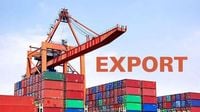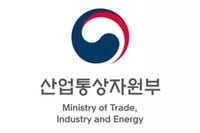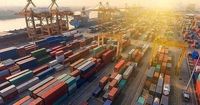NEW DELHI: In response to growing global trade uncertainties, both India and South Korea have stepped up efforts to bolster their export markets through a series of supportive measures aimed at enhancing domestic capacities and broadening business opportunities.
The Indian government has introduced an array of initiatives to improve export competitiveness, with the Foreign Trade Policy effective from April 1, 2023. According to Minister of State for Commerce & Industry Shri Jitin Prasada, this policy is designed to integrate India more effectively into the global market, making it a reliable trade partner.
Among the notable initiatives is the establishment of 65 Export Facilitation Centres (EFCs) across India, specifically aimed at supporting exporters, particularly micro, small, and medium enterprises (MSMEs), in navigating foreign markets. These centers provide essential mentoring and resources to boost export activities.
Additionally, the government is leveraging several financial schemes. The Rebate of State and Central Levies and Taxes (RoSCTL) Scheme, which focuses on labor-oriented textiles, has been active since March 7, 2019. Coupled with the Remission of Duties and Taxes on Exported Products (RoDTEP) scheme, implemented from January 1, 2021, these initiatives are designed to enhance competitive pricing for India's exports. Recently, the scope of RoDTEP has expanded to sectors like steel, pharmaceuticals, and chemicals, covering 10,642 tariff lines, with a budget allocation of Rs. 16,575 crores for the current fiscal year.
Furthermore, a Common Digital Platform for Certificate of Origin has been launched, facilitating smoother trade processes and increasing utilization of Free Trade Agreements (FTAs) by exporters. The initiative known as 'Districts as Export Hubs' seeks to identify and support products with export potential in various districts, fostering local economies and creating job opportunities.
On the international front, India is actively negotiating Preferential/Free Trade Agreements (PTAs/FTAs) with various trading partners, including the EU and the UK. Currently, it holds membership in 13 FTAs and 9 PTAs to strengthen trade connections.
Meanwhile, in South Korea, the Ministry of Trade, Industry and Energy held a joint conference on March 26, 2025, aimed at implementing a comprehensive support package for local firms engaged in exporting. Industry Minister Ahn Duk-geun stated that this initiative reflects the government’s commitment to providing "all-out" support to South Korean companies in their export endeavors.
The support package includes an emergency system to assist companies facing tariff challenges, consultations on business strategy, and a financial backing scheme valued at 366 trillion won (approximately $249.9 billion). This extensive package is designed to help local businesses adapt to protectionist policies adopted by major economies, ensuring they can seize new export opportunities with competitive technologies and innovative strategies.
Kang Kyung-sung, president and CEO of KOTRA, emphasized the importance of collaboration among export-related agencies to enhance support for South Korean businesses. "We aim to actively collaborate with export-related agencies and utilize our domestic and overseas network to facilitate exports, ensuring our companies thrive in the international market," Kang mentioned.
As both nations embark on these ambitious projects, the focus remains clear: enhance economic resilience, fortify international trade positions, and respond proactively to the challenges posed by an uncertain global economic landscape. By fortifying their export capabilities and navigating the complexities of international trade dynamically, India and South Korea are not only striving to increase their global footprint but also to create sustainable ecosystems that can weather future challenges.
In conclusion, the combined efforts of India and South Korea to strengthen their export sectors concern not just economic growth but also broader goals of global integration and lasting partnerships. These initiatives represent a commitment to fostering a more robust trading environment that stands resilient amidst shifting market dynamics.







